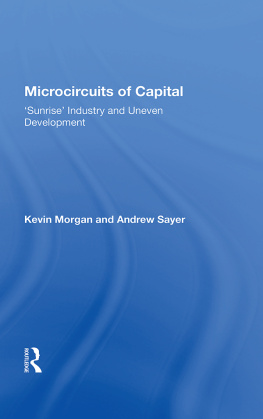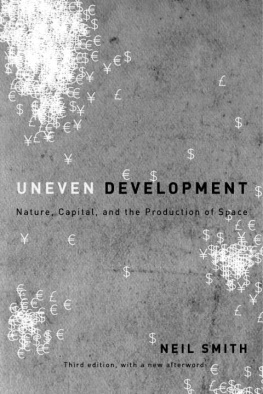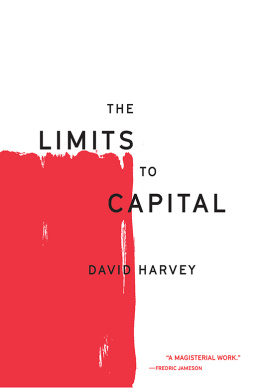Microcircuits of Capital
First published 1988 by Westview Press
Published 2018 by Routledge
52 Vanderbilt Avenue, New York, NY 10017
2 Park Square, Milton Park, Abingdon, Oxon OX14 4RN
Routledge is an imprint of the Taylor & Francis Group, an informa business
Copyright Kevin Morgan and Andrew Sayer 1988
All rights reserved. No part of this book may be reprinted or reproduced or utilised in any form or by any electronic, mechanical, or other means, now known or hereafter invented, including photocopying and recording, or in any information storage or retrieval system, without permission in writing from the publishers.
Notice:
Product or corporate names may be trademarks or registered trademarks, and are used only for identification and explanation without intent to infringe.
ISBN 0-8133-0828-3
Library of Congress Cataloging Number LC 8820712
ISBN 13: 978-0-367-00337-1 (hbk)
For Elizabeth and Louis
Contents
2 Industry and Space
Theoretical Perspectives
9 A Modern Industry in a Mature Industrial Region
The Electrical Engineering Industry in South Wales
10 Social Innovations 1
Electrical Engineering in South Wales
12 Social Innovations 2
Electronics in the M4 Corridor
13 Sunrise Industry, Innovation and the State
The Neoliberal Regime
14 Conclusions
In and Against Uneven Development
Guide
This book had its origins in two ESRC-funded research projects: the first project began in 1982 and looked at the electrical engineering industry in South Wales (project number HR 8353(D)); the second, looking at the development of the electronics industry in the so-called M4 corridor, began in 1984 and finished in 1985 (project number DOO 232077). We are grateful to the ESRC for its material support for these projects. The book was conceived and written at a time when enormous claims were (and still are) being made on behalf of high technology. In focusing on the electronics industry our central aim has been to introduce a critical perspective against which these wider claims can be assessed. This is an important political task because high technology is widely perceived to be a panacea for industrial decline, regional decay and unemployment some of the pressing political issues in contemporary Britain.
All books carry debts, social as well as intellectual, and ours is no exception. The University of Sussex provided a highly favourable environment for interdisciplinary research and here our thanks go to Tony Fielding, James Barlow and Mike Savage in Urban and Regional Studies. Our association with the Science Policy Research Unit at Sussex has been enormously helpful; our thanks especially to Erik Arnold, Tim Brady, Ken Guy and Peter Senker. Thanks also to Susan Rowland for drawing the diagrams. Further afield we must thank Nia and Phil Cooke and Eirlys and Kim Howells and Terry and Gareth Rees for their hotels; Gary Lawson of the Engineering Industry Training Board; Martin Boddy and John Lovering of the School of Advanced Urban Studies, Bristol; Richard Meegan and CES Ltd; Steve Kennedy, Doreen Massey, Dick Walker, Michael Storper and Dieter Ernst; and finally the many managers, trade union officials and workers who gave so much of their time, without which this book could not have been written. Our main debts are not so far afield, and our thanks and love go to Sue Taylor and Hazel Ellerby for helping us keep things in perspective and for reminding us of the problems of other kinds of uneven development.
Part I
Introduction and Theory
Introduction
An American multinational, X, headquartered in Silicon Valley, announces the setting up of a new electronics plant in a British development area, thereby extending its global production system. The news is greeted by the regional development agency as a major boost to the local economy perhaps the beginnings of another Silicon Valley and as a sign that it need no longer be dependent on smokestack industries like coal and steel. However the work to be carried out at the new plant and the type of workers are very different from those of Xs Silicon Valley plants, and indeed from those of its West German and Taiwanese plants. Central government welcomes not only the promised job creation but the boost to the British electronics industry and to what it sees as the key sector for economic regeneration in the coming decades. It also hopes that indigenous firms will learn something from Xs sophisticated management techniques. Other interests see Xs arrival differently. To Y, an established indigenous company, it is a competitive threat, and one that has been increased by the governments action in welcoming it into the British market. Trade unions already involved in Y share these doubts but naturally want to ensure that Xs plant is unionized. This proves to be difficult and in any case they have mixed feelings about the implications of its sophisticated management techniques which challenge traditional ways of working. A few years later X itself comes under threat from imports from Japan and the newly industrializing countries and announces redundancies in response to a crisis of overproduction in the industry. Meanwhile, Y has already substantially withdrawn from competition in this market, again with resulting job losses in various regions. At national and EEC levels, governments try to rally firms in similar situations to act together against overseas competition although, as many of the firms themselves are in competition with one another and have overseas interests, little comes of it.
To regular readers of the business press there are some familiar themes here, but it is a highly complex story, involving a range of different social, economic and political interests, partly conflicting, partly parallel, operating at scales ranging from the local to the international, and in places as different as California, central Scotland, Tokyo and Penang. It is also poorly understood. Part of the reason for this is the tendency for hype to drive out serious analysis where industries considered to be high tech are concerned. But the main reason is the difficulty of grasping how all these cross-cutting interests arise as part of a process of uneven development a process in which nothing less than the rise and fall of industrial countries and regions is bound up.
In this book we examine that process by showing how these themes interweave in the electronics industry and how they produce very different kinds of development in different places. It is a study of the interrelationships between economic, social, political and spatial dimensions of the development of the industry, concentrating on Britain, but as part of an international division of labour. Within this broad ambit, we pay special attention first to the changing global division of labour and pattern of comparative advantage, looking at the shifting relative positions of the USA, Europe, Japan, the newly industrializing countries and other Third World countries. Secondly, and with particular reference to Britain, we look at the industrys implications for regional development and for labour in terms of employment and the changing nature of work. As our opening hypothetical example suggested, new industries are frequently associated with new forms of social organization of production and in part their success depends on winning assent to them, often in areas with contrasting labour traditions. Finally, in the light of these assessments, we consider the condition of electronics in Britain and its policy implications. Note, however, that we do not deal with the wider question of the economic impact on user industries and the economy at large, but focus instead on processes either internal or immediately contextual to the electronics sector.











